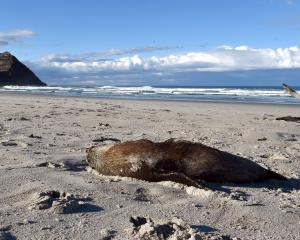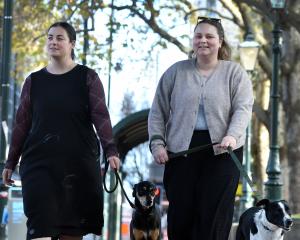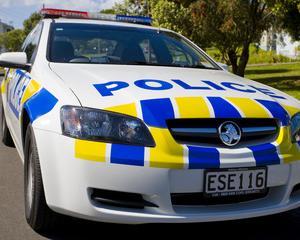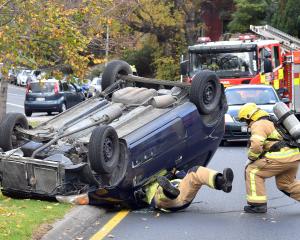The Government established a Public Defence Service (PDS) office in Dunedin almost two years ago and allocated 50% of the court's legal aid cases to its four criminal lawyers.
It left independent counsel significantly less work, particularly young lawyers not able to take trials.
Criminal lawyer Anne Stevens said it was no longer viable for young lawyers to specialise in criminal law.
She and other long-serving members of Dunedin's independent criminal Bar could rely on trials to keep them busy, but those restricted to category 1 and 2 cases - with maximum penalties of up to 10 years' imprisonment - did not have enough work to justify their involvement, she said.
It meant when Dunedin's senior criminal lawyers started to retire, in as little as five years, there would be no-one to replace them.
''It will be the end of our independent criminal Bar. It's vital to have independent lawyers, because there are some cases involving multiple people who can't all be represented by the PDS,'' Mrs Stevens said.
An independent Bar was also necessary to do work not assigned to the PDS, including parole board work and self-funded criminal cases, she said.
''They [PDS lawyers] only act for people eligible for legal aid. They could also not do appellate work where the ground of appeal was that they, as counsel, made a mistake,'' Mrs Stevens said.
New Zealand Law Society Otago branch president Gerard De Courcy said in addition to independent lawyers losing half of all legal aid cases, in general the number of criminal legal aid grants had reduced.
''It's particularly difficult for young lawyers to enter this area,'' he said.
It could lead to the Government taking all criminal legal aid cases, Mr De Courcy said.
''That would mean the Government would arrest, defend and judge people who can't afford a lawyer privately. Criminal law is not an area without controversy and society benefits from a robust and independent legal profession,'' he said.
Justice Minister Judith Collins said the Government valued a strong private Bar working alongside the PDS, which was introduced to address issues of quality, timeliness and performance in criminal cases.
She said the PDS provided a good training ground for criminal barristers, who often became private lawyers, and, although it was not surprising there was a reduction in the number of private legal aid providers in Dunedin, some would be employed by the PDS.
New Zealand's falling crime rate also affected lawyers' caseloads, she said.
''It's important to note we currently have a profession dealing with change. The numbers prosecuted in court are falling and are at their lowest level in a decade.
''Policing excellence changes and the use of pre-charge warnings has also played a part in reducing the number of criminal prosecutions.''
In the 12 months to September 30, the PDS took 47% of category 1 cases, 40% of category 2 cases, 28% of category 3 cases and 38% of category 4 cases in Dunedin, Ms Collins said.
''That means 1053 cases went to the private Bar and 920 cases to the PDS.''
The Law Society last week published statistics showing gross payments for legal services in Dunedin had fallen about 27%, from $4.39 million to $3.17 million in the past year.
There were about 300 lawyers in the city.
The Dunedin PDS office opened in November 2011, after the Government announced it would increase the allocation of criminal legal aid cases to PDS lawyers from 33% to 50%.
It was anticipated the Dunedin PDS office would eventually employ about 10 lawyers as well as administrative staff.
The PDS had grown into New Zealand's largest criminal law practice, with more than 170 employees.
Advertisement













